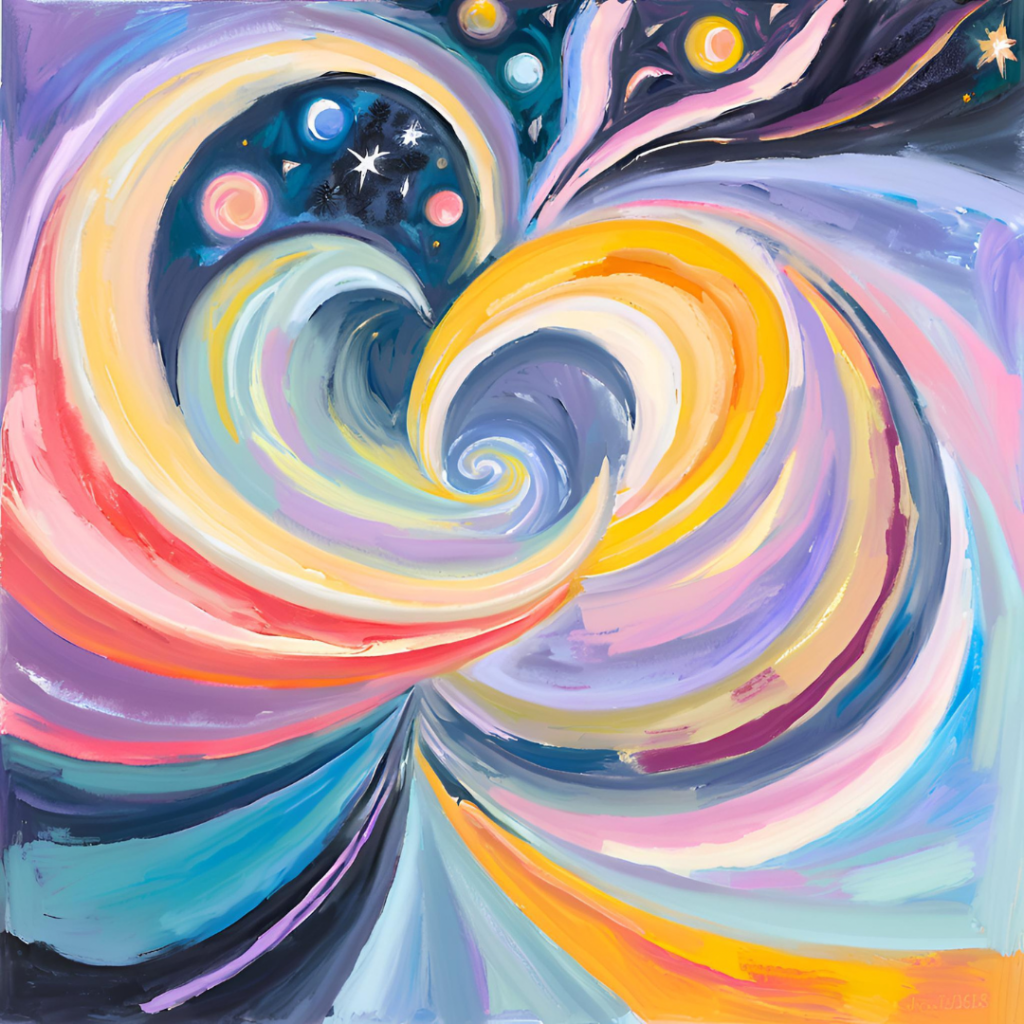The Quiet Revolution: Choosing Your Truth Over Their Expectations
“This is where the word must potentially becomes a kind of armor… It offers the illusion of control and safety.”
Though we’ve been taught to live by musts and shoulds, to seek approval and follow rules, we can choose a different way. By pausing, listening inward, and honoring what feels true, we begin to reconnect with ourselves.
Trusting your intuition is not only possible—it’s empowering. With small, consistent steps, you can shift from obligation to alignment, from performing to truly living. This return to self is not just healing—it’s a gift.

We live in a culture of must.
We must be productive.
We must meet expectations.
We must do what’s considered “right,” what’s proven, what makes sense to others.
Rarely do we pause to ask: What do I want?
Even more rarely: What do I feel like, deep down?
Given our Capitalistic Culture, that is no surprise. From early on, we’re taught that authority lives outside of us: in rules, roles, and routines. We’re praised for compliance and corrected for deviation. Over time, this conditions a loosening of our own knowing. We forget the wisdom that moves within us: the senses of our own body, our intuition.
This article is an invitation to notice where you may have given your inner compass away and how to begin the slow, empowering work of taking it back to you.
The Rise of the Inner “Should”: How Culture Shaped the Way We Ignore Ourselves
The story of the inner must (and its a little more gentle cousin, should) is centuries old.
It lives in institutions—schools, workplaces, religions—that were not designed with the individual in mind, but with survival, control, and continuity as their highest aims. These systems teach us to defer, to conform, to obey. “Good” behavior means: fitting in. “Success” means: climbing the ladder. Trusting one’s inner knowing therefor becomes a danger; a threat to the established order.
These systems are built to preserve themselves. They depend on predictability, compliance, and the reliable reproduction of roles. They rely on taxpayers, obedient citizens, and workers who stay in line and keep the same wheel turning. A population full of self-trusting, internally guided individuals—who ask different questions, who move in divergent ways—would be a liability, not an asset.
Within these structures, intuition has no measurable output and no recognized value. Intuition is hard to explain. It can’t be proven scientifically and is not accessible for the rational mind. It doesn’t ask for permission. As a consequence, it gets dismissed as impractical, emotional and indulgent. And so, we end up measuring our worth in achievements, milestones and checkboxes; not in alignment, inner resonance, meaning and the happiness we live.
The price of that is immense:
When we build our lives on external directives, we end up living out the fears, ambitions and agendas of others – often unknowingly. We become more and more unable to recognize our inner yes and no. We become strangers to our own desires and, in the worst case, turn into puppets of a machine that benefits a few while exhausting the many.
The farther we drift from ourselves, the more noise we seek to fill the void – whether through addiction, achievement, or distraction. The system thrives on that disconnection. But humans don’t.
What Happens When We Stop Listening: The Psychology of Outsourcing Inner Authority
The trading intuition for instruction—outsourcing our inner authority to external sources—is not, despite the cultural critics above, part of a sinister plan by a shadowy elite. The drive to do this begins in the human brain itself: it loves certainty.
Given the world we currently are living in, that need is indeed heightened. Change has always been part of life, but keeps moving faster, with more complexity, making everything feel increasingly fragile. In such a landscape, we crave formulas: do this, get that. Turning to systems, experts, or social norms feels more reliable than trusting something as intangible and elusive as a gut feeling.
Additionally, it’s not just the brain resisting uncertainty.
The ego, too, seeks safety in the predictable. It builds our identity through habits, labels, and external validation. It wants to be right. It wants to belong. It wants control. As a consequence, it tends to choose what’s socially acceptable or intellectually approved over what feels deeply, sometimes inconveniently, true. Especially when our inner truth would require us to question or abandon parts of the life we’ve already built.
The ego prefers the comfort of a familiar narrative—even a stifling one—over the open-endedness of real inner inquiry. Because to follow our intuition often means stepping into unknown territory, with no guaranteed outcome. That’s a risk the ego would rather avoid.
But this avoidance has emotional consequences:
- Chronic stress from pushing ourselves to operate in ways that go against our natural rhythms
- Frustration from living lives that don’t reflect our true values
- A persistent, quiet pain in the back—caused by the sense that we’re not really choosing any of what we’re living
Over time, we lose not just connection to our intuition, but to our sense of agency. We forget that we have the right—and the power—to decide what is true for us. That we can listen inward, even when the world is shouting, and create the very life our heart desires.
Fear, Safety, and the Silence of Inner Wisdom: Why It Feels So Hard to Trust Ourselves
If we’re not used to trusting our intuition, it might feel very new and unfamiliar, especially when we’ve mostly made decisions based on logic or external expectations. Stepping into one’s own inner guidance can initially feel challenging, even a little unsettling. It is like a new muscle—it needs consistent exercise to work well. Worries might arise, such as:
What if I am wrong?
What if I disappoint someone?
What if following my gut feelings leads to failure, judgment, rejection?
Many of us carry wounds around decision-making. Perhaps our feelings and perspectives weren’t heard or honored as we grew up; perhaps our emotions were dismissed, or our desires were labeled as “wrong” or “selfish.” When our inner world isn’t validated as a child, we learn to doubt what we feel and think. We adapt by tuning out our own voice and prioritizing the expectations of others instead. This early disconnection from ourselves, unfortunately, primes us for having difficulties in trusting our intuition later on.
This is where the word must potentially becomes a kind of armor. It protects us from risk and uncertainty by creating a clear set of rules: “I must do this, I must not do that.” It’s a way to avoid the discomfort of ambiguity or the fear of making a “wrong” choice. “Must” tells us, “I’m doing what I’m supposed to do,” and in doing so, it offers the illusion of control and safety.
The great news here? You can absolutely rebuild it and you can start, as usually, very small.
Rebuilding trust with your intuition doesn’t require a grand gesture. With gentle moments of curiosity and self-attunement, asking yourself:
- What do I feel right now?
- What do I need in this moment?
- What would feel true, even if it’s inconvenient or uncomfortable?
Trusting yourself is a journey, much like any meaningful relationship. At first, it can feel unfamiliar or even intimidating. But with time, patience, and compassion—for your uncertainties and fears—that trust grows stronger.
The effort is worth it: as you deepen your relationship with yourself, decisions naturally become easier. What once felt heavy and fraught with doubt gradually becomes a flow where you only need a moment to tune in and clearly sense the right path forward.
Coming Back to Yourself: Easy Practices to Reawaken Inner Knowing
The more you create space to check in—gently and consistently—the clearer your inner voice becomes. Don’t do it with pressure, but keep doing it; step by step. Here are a few ways to begin:
1. Pause Before You “Must”
Before doing something out of obligation, take one breath. Ask yourself: Do I really have to? What would I choose if I trusted myself? What do I feel like? Do I feel like doing that?
Even if the answer is still yes, this moment of awareness starts to shift something in a beautiful way that you will notice.
2. Replace “I must” with “I want” or “I feel”
This choice, that I happily made years ago on a long bike trip through Scandinavia, changed my life. Honestly, deleting “I must” from your consciousness is a beautiful gift that you can give to yourself right now.
Notice how your body responds to each statement:
- “I must go to that meeting” vs. “I want to show up today”
- “I should say yes” vs. “I feel hesitant and need more time”
Language is insanely powerful and shifts perception. And perception shapes reality.
3. Journaling Prompts
Get to know yourself by asking you the following questions:
- What does my body feel when something is a true yes? Where do I feel it?
- Where have I overridden myself lately?
- What would I do if I wasn’t afraid?
Write without editing. Just note down what is there; be true to yourself.
Remember this, my Love
You are not broken for struggling to hear yourself.
You are not weak for wanting to be safe.
You are not selfish for wanting something different.
You are not less worthy for choosing your own path, for choosing yourself.
Your inner knowing has not left you. It may be quiet. It may be cautious. But it is there. Waiting, patiently, always, for the moment you choose to listen.
And this choice—this turn inward—is not just personal. It’s not selfish. Quite the opposite.
It’s powerful.
It’s revolutionary.
It’s a return to wholeness.
It’s the biggest gift you can give to the world.
